Mayhem in the Labuk, Part 2
By gofb-adm on Wednesday, July 1st, 2020 in Issue 1 - 2020, Publication No Comments

By gofb-adm on Wednesday, July 1st, 2020 in Issue 1 - 2020, Publication No Comments
The Libuk Durian massacre was certainly the bloodiest event in the early history of Tungud. However the saddest incident, which took place the following year, must surely be the story of Suppiah and Leena.
Read more »By gofb-adm on Friday, February 21st, 2020 in Issue 1 - 2020, Publication No Comments
If the year 1963 was the pivotal year for the project, it was an even more important year for North Borneo. To quote Dr Mahathir Mohamad, the Prime Minister a decade or two later, it marked ‘the transformation of Sabah from a colonial backwater to a dynamic state within Malaysia’.
Read more »By gofb-adm on Friday, February 21st, 2020 in Issue 1 - 2020, Environment No Comments
On July 23, 2019, the European Commission (EC) adopted a Communication addressed at the European Parliament, the Council of the EU, the European Economic and Social Committee and the Committee of the Regions on ‘Stepping up EU Action to Protect and Restore the World’s Forests’.
It builds on a number of EU strategies and intends to lay out possible actions to enhance existing policies and take additional action. The Communication follows up on the EU’s 2008 Communication on Deforestation.
The Communication adopts a very broad approach, focusing on five distinct areas of priority and future action:
Importantly, the Communication does not suggest any immediate regulatory action, providing only detailed input for the incoming EC, which can be expected to take further action in the months and years to come.
While the Communication contains several calls for enhanced cooperation and coordination among the EU, third countries, and other actors in industry and civil society, there are also a number of worrying elements that might indicate further discrimination and unilateral action to the detriment of the EU’s trading partners and specific commodities, such as palm oil.
Interestingly, the EC begins by reviewing the EU’s forest cover and its development, noting that the forests had grown from 1990 to 2015 ‘by an area the size of Greece’. Obviously, the EC does not refer to the fact that, historically – prior to logging forests for timber and to make place for agricultural crops – the forest cover in the area of today’s EU had been much more significant. A convenient omission, when calling on other countries to step up their efforts.
The Communication then reviews the drivers of deforestation and identifies the following:
However, the Communication does point out that around 80% of current global deforestation is attributed to the expansion of land used for agriculture. It is then recognised that EU consumption represents around 10% of the global share of deforestation embodied in total final consumption.
The Communication provides an overview of existing EU strategies relating to forests, deforestation and sustainability. Importantly, the EC refers to its efforts of raising consumer awareness with respect to the reduction of the EU’s ‘consumption footprint’, specifically encouraging people to purchase products from deforestation-free supply chains.
The 2008 Communication on Deforestation had put forth the objective to ‘reduce tropical deforestation by 50% by 2020’. Still, the Communication notes that, despite the EU’s ongoing efforts, this objective would likely not be met, leading the EC to conclude that it must ‘step up action and take an even stronger leadership role in protecting and restoring world’s forests’.
Therefore, it can be expected that the EU will continue on its recent regulatory path, which might have additional implications for third countries.

Priority areas and action plans
The Communication details five areas of priority, with corresponding ‘key actions’. These actions are regrouped and further defined in an annex listing the actions to be implemented by the EU, while a second annex lists the recommended actions for EU member-states, industry and civil society.
While the EU’s concerns appear to be sincere, misconceptions and some rather hypocritical elements remain, bringing into question its commitment to fact- and science-based policies.
In fact, part of the Communication appears to be just as ill-informed as the EC’s ‘Report on the status of production expansion of relevant food and feed crops worldwide’. This had accompanied the draft of the EC Delegated Act as regards the determination of high indirect land-use change-risk feedstock – for which a significant expansion of the production area into land with high carbon stock is observed and the certification of low indirect land-use change-risk biofuels, bioliquids and biomass fuels.
The Communication arbitrarily refers to a period from 1990 to 2015, when EU forest cover increased, ignoring the historical events that led to the disappearance of vast forested areas in Europe in the first place.
With respect to the five priorities, a number of issues should be highlighted. As part of the first priority, the Communication refers to the EU’s biofuels policy, notably to the new rules on indirect land use change (ILUC) and the criteria for determining high and low ILUC-risk biofuel feedstock.
In the context of the Delegated Act on ILUC, and the accompanying report, it must be pointed out that the fifth priority focuses on ‘the availability of, quality of, and access to information on forests and commodity supply chains’, clearly implying that the available information and data are not yet adequate and sufficient.
This follows the rather embarrassing statements in the EU’s production expansion report, which often noted that data was ‘not available’ or ‘assumed’. Before important decisions are made, with sometime dire consequences for countries and businesses around the world, the facts should be established with scientific accuracy.
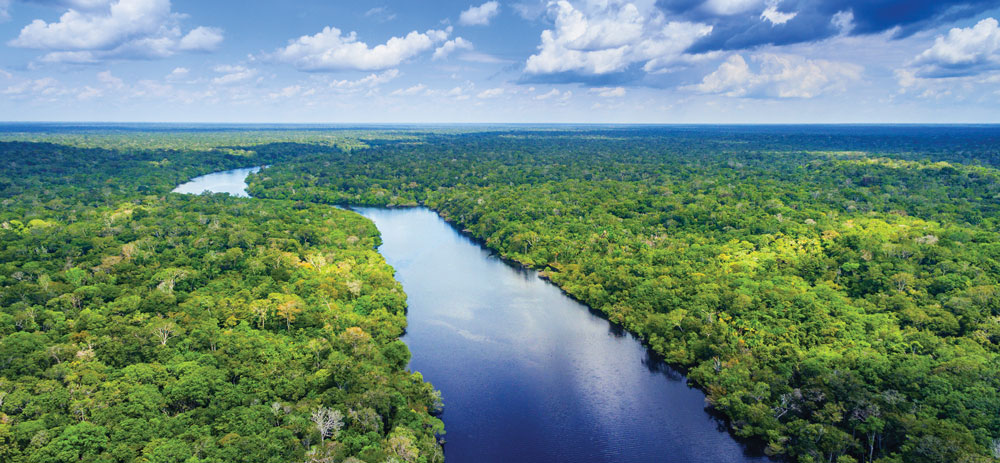
As part of the first priority, which aims at reducing the EU’s consumption footprint on land and encouraging the consumption of products from deforestation-free supply chains, the Communication also refers to the EC’s intention to ‘make it easier for suppliers, manufacturers, retailers, consumers and public authorities, to identify, promote and purchase such products’.
This specifically refers to Regulation (EU) No. 1169/2011 on the provision of food information to consumers, ‘which allows them to distinguish the various vegetable oils contained in products’. This implies that a consumer, by knowing the type of vegetable oil used in a food product, would be able to determine if a product originated from a deforestation-free supply chain, further implying that only certain vegetable oils are to blame for deforestation.
It is not difficult to imagine that this is supposed to refer to palm oil, which has been long denigrated in widespread negative campaigns throughout the EU. Despite the requirement of the EU’s Food Information Regulation, an increasing number of food products is marketed with a label stating that the product is ‘palm oil-free’ – even when the type of vegetable oil used in the product must be indicated on the list of ingredients.
Such claims are misleading and arguably illegal under EU rules. Still, the EU and its member-states have done nothing to halt these campaigns, which generalise against all palm oil; and the reference in the Communication appears to be another endorsement of such deliberate misinformation.
The Communication also discusses the issue of certification and verification, referring to a 2018 study on sustainability standards for palm oil. The Communication notes that guidance should be provided on the credibility of existing sustainability schemes. It calls for standards and certification schemes, which help identify and promote deforestation-free commodities, to be strengthened through, inter alia, ‘studies on their benefits and shortcomings and by developing guidance, including assessment based on certain criteria to demonstrate the credibility and solidity of different standards and schemes’.
However, it is not clear how such studies and guidance documents for the multitude of existing sustainability certification schemes would improve the current situation. Rather, they risk making things even more complex for the consumers. The EC appears to have missed another opportunity to call for the definition instead – in cooperation with the governments of interested countries, particularly the key producing countries – of truly multilateral standards of sustainability.

The second priority refers to working in ‘partnership with producing countries to reduce pressures on forests and to achieve deforest-proof EU development cooperation’, while the third priority refers to international cooperation.
However, in view of recent unilateral EU measures that discriminate against key export products from certain trading partners, such as palm oil, this approach appears as lip service, if not followed by actual undertakings.
Priority Two details the EU’s efforts with respect to the EU Timber Regulation and the EU Forest Law Enforcement, Governance and Trade Action Plan (FLEGT). It is worth noting that Indonesia was the first country to start issuing, on Nov 15, 2016, FLEGT licences for verified legal timber products to be exported to the EU. In the subsequent 12 months, Indonesia issued more than 39,000 licences for shipments exported to all 28 EU member-states, with a total value of more than EUR 1 billion.
If such system works for timber, in terms of enforceability on the ground and recognition by the EU, it is not clear why a similar system could not also work for verifying and certifying sustainable palm oil on the basis of a multilateral standard, to be defined and agreed by the EU and the key palm oil producing countries led by Malaysia and Indonesia.
The Communication is a non-binding information document intended for internal use, but will also surely contribute to public debate. The EC invited the European Parliament and the Council of the EU to endorse it.
On Sept 5, 2019, the European Parliament’s Committee on the Environment, Public Health and Food Safety (ENVI) held an exchange of views with the EC on the Communication; and the ENVI Committee is reportedly planning a hearing on the protection of forests. Reports also indicate that the EC will soon make a legislative proposal.
The focus is on trade and international cooperation while, at the same time, implicitly endorsing discriminatory practices against certain products, such as selected vegetable oils.
It can only be hoped that the incoming political leadership of the EC will focus with sincerity on the elements of cooperation and partnership laid out in the Communication, rather than on continuing the unilateral approach and de facto discrimination against palm oil.
FratiniVergano
European Lawyers
By gofb-adm on Friday, February 21st, 2020 in Issue 1 - 2020, Markets No Comments
Bursa Malaysia Bhd has launched a US Dollar-denominated options contract on refined, bleached and deodorised (RBD) palm olein futures (OPOL). This is the world’s first such product for palm olein.
Serving to complement the US Dollar-denominated RBD Palm Olein Futures Contract (FPOL), OPOL broadens the array of possible risk management tools available to players. This is in line with the aim of expanding Bursa Malaysia Derivatives’ product offerings under the palm oil complex.
Bursa Malaysia Bhd Chairman Datuk Muhamad Umar Swift said the move to make available OPOL is in response to market demand.
“The OPOL contract allows for the introduction of more sophisticated strategies to raise the level of derivatives trading and will attract new categories of market participants, such as commercial banks and options writers and traders,” he said in a statement.
“We look forward to taking the Malaysian derivatives industry to the next level with the debut of this world’s first product, underlining the Exchange’s commitment to strengthen Malaysia’s position as the centre for palm oil price discovery and the global premier palm oil market.”
OPOL provides palm oil refiners, end-users of palm olein and foreign palm olein importers with a mechanism for transparent price discovery, regulated trading and hedging against adverse palm oil price movements.
For traders, OPOL is an additional instrument that can be utilised by local and international participants.
Between now and June 30, 2020, all market participants will be entitled to a waiver on the exchange fee and clearing fee on OPOL transactions.
RBD palm olein is a major component of the palm oil value chain. Malaysia produces approximately 10.7 million tonnes of RBD palm olein a year, with approximately 75% for the export market.
Source: Bernama, Jan 13, 2020
This is an edited version of the report.
By gofb-adm on Friday, February 21st, 2020 in Issue 1 - 2020, Markets No Comments
A US Department of Agriculture (USDA) analysis [attributed to ‘Post’] has forecast that Brazil could become the world’s leading soybean producer for the 2019/20 season. The country’s planted area is 36.8 million ha for this period, in line with local market expectations. The Brazilian Real has weakened against the US Dollar from about R$4.09 in October 2019 to R$4.17 to the Dollar for the first two weeks of December. These price developments are believed to have pushed some producers to sow a slightly larger area than they otherwise would have.
Notably, the area expansion could have been larger if the local market believed that global soybean consumption would be higher. There is still a lot of consternation over dampened Chinese demand due to the widespread prevalence of African Swine Fever (ASF), which has decimated swine herds and curbed feed needs. Additionally, producers are keenly following the emerging trade truce between the US and China. Producers are cognizant that a trade accord between Washington and Beijing is almost certain to reduce Brazilian exports and exert downward pressure on its soybean prices.
A record crop is projected for the 2019/20 year at 123.5 million tonnes (Figure 1). Brazil’s previous record crop was 122 million tonnes, recorded in the 2017/18 season. The 2019/20 production forecast is based on a return to trendline yields after the current season was adversely affected by inclement weather. Yield is predicted at close to 3.4 million tonnes/ha.

Notably, according to the forecast by the World Agricultural Supply and USDA, the US soybean harvest will be less than 100 million tonnes in 2019/20, a drop of almost 2% compared to the previous season. So, as long as local weather across the key producing states does not deteriorate significantly, Brazil is expected to overtake the US as the leading soybean producer this season.
Early in the season, producers grappled with much-drier-than-average conditions in key growing states. Due to the resulting lack of soil moisture, farmers in Mato Grosso, the largest soybean producing state in Brazil, did not begin planting their fields until the end of September.
Typically, producers like to sow right at the end of the mandatory sanitary period, the so-called vazio sanitário, which in Mato Grosso ended on Sept 16. This regulation prohibits crop planting for several months in between harvests in order to mitigate incidence of fungal diseases in the absence of cold weather. In the state of Paraná, Brazil’s second-largest producer, the vazio sanitário ended on Sept 12, but a lack of rain did not permit farmers to plant until November.

The same variable weather has also affected the north and north-east states of Bahia, Piauí, Tocantins and Maranhao, collectively known as Matopiba. This is a key growth region for soybean production. Analysts indicate that due to irregular rainfall in October and November, some producers in that area will have to replant their soybean, while others may miss the soybean planting window altogether and instead move on to planting corn, which allows for a longer planting window. As a consequence, Post believes that productivity in the Matopiba region may be below average in 2019/20. More broadly, however, Post forecasts yields across most of the soybean growing states will improve over last season.
According to Brazilian agricultural consultant AgRural, as at the first week of December, producers nationwide had planted 93% of their total projected area, compared to 96% a year ago and in a line with the five-year average. In fact, although the pace of soybean planting has been significantly below what was recorded in the 2018/19 season, 2019/20 sowing progress is on par with the historical average. As a result, the delayed pace of planting should not significantly impact the harvest timeline, with the first soybean harvested ready to ship in January.
Post maintains its estimate of 36.2 million ha planted area for the 2018/19 season, with production estimated at 116 million tonnes, based on lower-than-trend yield. Despite the promising early start to planting in the 2018/19 season, adverse weather affected yields across most soybean-producing states.

Export forecast
Post forecasts soybean exports for market year (MY) 2019/20 (February 2020 to January 2021) to reach 75 million tonnes. This is based on recovery in available supplies, but also anticipates subdued demand from China for several reasons. Firstly, China will continue to grapple with the adverse effects of ASF and the resulting drop in feed demand. Secondly, Post anticipates Brazil will lose some portion of its China export share to the US in the wake of a trade deal between Washington and Beijing that was announced in mid-December 2019.
The initial reaction of the Brazilian market to the US-China trade accord has been muted, despite reports that the deal includes a pledge from China to buy $40-50 billion of US agricultural products within two years, compared with $24 billion in purchases before the trade dispute erupted. At this point, Post contacts have not revised their soybean export estimates for 2019/20. Instead, most have adopted a wait-and-see approach, in anticipation of next season’s harvest coming online in January 2020.
Local analysts also point to the fact the forecast shift in global supply may benefit Brazilian exports. For example, the US soybean crop is forecast 20% less than last season due to inclement weather negatively affecting both planted area and yields. Meanwhile, higher export taxes in Argentina may also make Brazilian soybean exports more attractive.
Post revised Brazil’s soybean exports upwards for MY 2018/19 (February 2019 to January 2020) to 73 million tonnes. Although yields have been disappointing this season, Brazil still produced ample supplies to satisfy both domestic and external demand. This calendar year, soybean exports followed in line with the five-year average month-to-month, until the final quarter of the year, when exports surged. Thus, Post’s upward revision is based on this record volume of exports in October and November 2019.
Typically, soybean volumes from Brazil trail off in the last quarter of the calendar year (Figure 3), with the harvest having wrapped up months earlier and most of the crop intended for export having been shipped. This timeframe also coincides with peak exports from the US. This scenario did not materialise in the 2017/18 season, as US-China trade tensions prevented Chinese buyers from sourcing American soybean. At the time, supplies from Argentina, the world’s third-largest exporter, were also constrained due to an extremely poor harvest. As a result, Brazil dominated global soybean sales in the fourth quarter of 2018.

Notably, this calendar year saw a repeat of the 2018 scenario, despite the fact that vessels destined for China loaded soybean both from the US and Argentina. Post believes that October-November 2019 soybean sales from Brazil were driven to a large degree by extremely favourable local soybean price dynamics. Post estimates that December exports will benefit from this same dynamic and will likely reach well over 2 million tonnes as producers had contracted whatever volumes they had left in the previous months.
Farmgate soybean prices have been rising steadily since the start of the year, with only a slight dip during peak harvest in March and April (Table 1). The surge in farmgate prices, denominated in the local currency, is partially attributed to devaluation of the Brazilian Real, which started the year at around R$3.75 to the US Dollar, but has since depreciated to over R$4.20/Dollar at the end of November.
The other dynamic driving this phenomenon is the persistently high export prices of Brazilian soybean, artificially boosted for most of the year by US-China trade tensions that prevented Chinese buyers from sourcing beans in the US. The Brazilian FOB premium (for soybean loaded at Paranagua vs US soybean shipped from Gulf) has remained stubbornly in the $11-18/tonne range over the last month (Figure 4).

Consumption and processing
Post maintains the 2019/20 forecast of 44 million tonnes of soybean destined for processing next season. The forecast is based on trend expansion of about 2% per year. Post forecasts 2019/20 production to reach 34.1 million tonnes of meal and 8.6 million tonnes of oil.
Post forecasts domestic meal consumption to increase by 4%, as livestock and poultry industries continue to expand production to meet rising global demand. As a result, Post forecasts that meal exports will remain nearly flat season-on-season. There is potential for positive upside if the Real remains weak vis-à-vis the Dollar, making meal exports more competitive. There is rising potential that Brazil and China will conclude an export agreement for soybean meal. However, in order for Brazil to be able to export soybean meal to China, it would also need to conclude a separate sanitary and phytosanitary agreement, meaning that Chinese market access is unlikely to come in the near future.
Post forecasts soybean oil exports to level off in 2019/20 to half a million tonnes from 1 million tonnes in the current season. The forecast is based on the expected surge in demand from the domestic biodiesel industry. The next increase in biodiesel blend mandate is scheduled for March 2020, less than a year after the last increase that went into effect in September 2019. The biodiesel blending rate is slated to rise by 1% every year, reaching 15% in 2023.

Post lowered slightly the 2018/19 soybean processing estimate to 42.6 million tonnes, contracting on last season’s crush of 43.5 million tonnes. The estimated season-on-season decline is based on several factors, including a smaller overall supply due to the dip in soybean production this season, and higher than initially expected export volume of raw soybean. In addition, persistently high soybean export prices further dampen domestic processing demand.
The Brazilian crush industry is particularly sensitive to competition with traders. The government incentivises soybean exports via the so-called Kandir Law, which waves the export duty for raw commodities but not processed products. As such, the processing industry faces much tighter margins than producers.
Post estimates Brazil’s soybean oil production at just under 8.2 million tonnes, with the majority of the product consumed domestically. Food use for soybean oil is estimated to remain unchanged on last season due to the very sluggish domestic economy. However, industrial oil use is projected to increase to 3.7 million tonnes, from Post’s estimate of 3.4 million tonnes in 2017/18, to accommodate the higher biodiesel mandate. Domestic demand for oil surged from August 2019, when the government gave final approval to increase the biodiesel blend mandate from 10% to 11% on Sept 1. The biodiesel industry in Brazil relies primarily on soybean oil (about 70%) for blending.

Together with domestic demand, the local price of soybean oil (with 12% ICMS tax) has registered a significant increase, reaching R$3,646.97/tonne in the city of Sao Paulo as of the end of November, the highest nominal level of the Cepea data series, which began in July 1998. In November, soybean oil prices averaged R$3,454.57/tonne, the highest in nominal terms in the Cepea historical series, 4.9% higher than in October and the highest since December 2016, in real terms. According to Cepea researchers, the surging oil prices are linked to the low availability of the derivative, at a time when domestic demand is peaking.
Post estimates Brazil’s soybean meal production will surpass 33 million tonnes for MY 2018/19. Domestic soybean meal consumption is estimated at 17.8 million tonnes, up from last season’s 17.6 million tonnes. The increase in domestic meal consumption is based on higher projected demand from the domestic livestock and poultry industries, which have benefited from increased export demand out of China. Meal exports are projected to decrease to 16.1 million tonnes, from almost 17 million tonnes last season, in connection with tighter supplies.
US Department of Agriculture
Dec 27, 2019
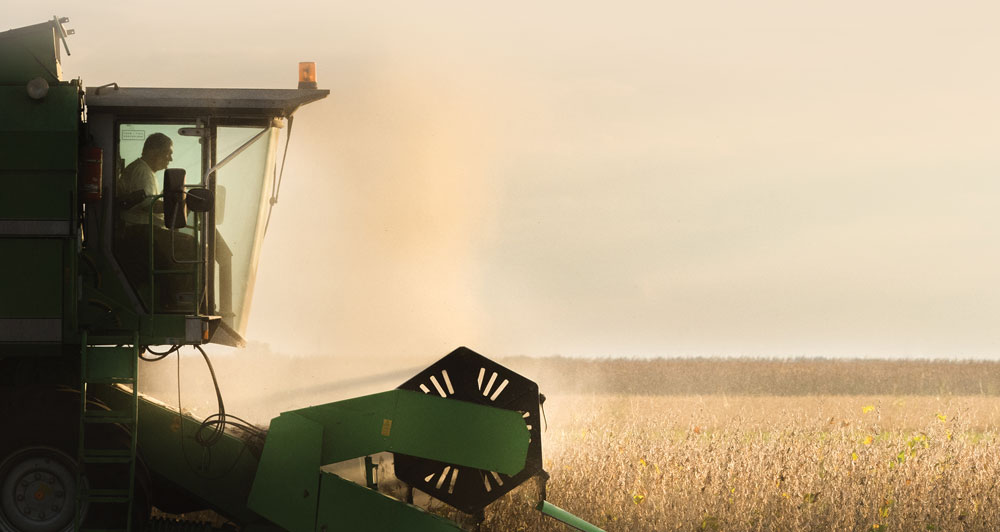
By gofb-adm on Friday, February 21st, 2020 in Issue 1 - 2020, Markets No Comments
In the first half of 2019, an increasing number of products with the ‘palm oil-free’ (Ohne Palmöl) claim/label began appearing in the German retail market. Until then, Germany had been among EU member-states in which the claim was not commonly used.
One of the first products to display the label was the La Crema chocolate spread by the Italian manufacturer VALSOIA. Other spreads not containing palm oil were not labelled with the claim as yet.
However, as experience has shown in Belgium, France, Italy and Spain, such developments soon lead to widespread use of the claim, as food businesses often feel that they face a competitive disadvantage. Sure enough, at least three other chocolate spreads and a margarine product now bear the claim in Germany, suggesting that a wave is building.
Since March 2019, the hazelnut spread Nudossi has been labelled as ‘palm oil-free’. Nudossi was already being marketed in Eastern Germany at the time of the German Democratic Republic and has been known as the ‘Eastern Nutella’. After the German Reunification, production ceased, but resumed after a break of several years in the spring of 1999. This shows the importance of this brand in the eastern part of Germany.
No fewer than 24 different varieties of Grashoff delicatessen chocolate spreads now bear a green ‘palm oil-free’ label, alongside the Xucker pistachios-coconut cream. In neighbouring Austria, the Haas Palmölfreie Nougatcreme hazelnut spread is being similarly marketed.
The Landkrone Bio Vegane margarine also bears a ‘palm oil-free’ logo. On its website, it is described thus: ‘Our new Organic Vegan Margarine from Landkrone combines sustainability and taste. High-quality shea butter instead of palm oil – this is good news for those who are looking for a palm oil-free margarine.’
Illegal claim
The ‘palm oil-free’ claim is illegal and in violation of EU law, notably of the Food Information Regulation (FIR) and the Nutrition and Health Claims Regulation, which are directly applicable in all member-states. However, the Regulations are not always properly enforced by the authorities.
In France, for example, the number of operators using the claim increased significantly over a short period – from 312 in 2013, to 666 in 2014, and to 692 by the end of 2015. The number of brands bearing such claims went up from 39 in 2013, to 60 in 2014, and to 66 in 2015.
It should urgently be brought to the attention of the German authorities why the claim is illegal.
Firstly, EU rules prohibit emphasis of the absence of an ingredient if comparable foodstuffs do not contain it. Article 7(1)(c) of the FIR provides that food information must not be misleading, particularly ‘by suggesting that the food possesses special characteristics when in fact all similar foods possess such characteristics, in particular by specifically emphasising the presence or absence of certain ingredients and/or nutrients’.
Therefore, voluntary food information, such as the ‘palm oil-free’ claim, must not suggest that the food possesses special characteristics when, in fact, all similar foods that do not contain palm oil possess such characteristics, in particular by specifically emphasising the presence or absence of certain ingredients and/or nutrients.
Additionally, since Dec 13, 2014, the specific vegetable oil used in any food products must be specified by law in the list of ingredients (such as ‘sunflower oil’ or ‘palm oil’).
Secondly, the ‘palm oil-free’ claim can be considered as misleading under Article 7(1)(a) of the FIR. When made in a nutritional and/or environmental context, the claim is usually unsubstantiated because palm oil consumption is not per se unhealthy and not all palm oil production is unsustainable.
It has become evident that the commercial practice applied by food business operators induces consumers to err, especially regarding the nutritional qualities of palm oil, as well as in the environmental context. The practice is capable of substantially altering the economic behaviour of informed and reasonably aware consumers with respect to products containing palm oil – which they might reject – and influence them in favour of products which they might perceive as being ‘better’ for health or the environment.
Palm oil, consumed as a dietary fat within a healthy and balanced diet, does not have incremental risks for human health. Within the environmental context, particularly in relation to deforestation and biodiversity, the accusations are often unsubstantiated generalisations. The example of the Organic Vegan Margarine from Landkrone ‘combining sustainability and taste’ clearly follows this deceptive approach.
Claims lacking foundation in science and factual evidence constitute misleading commercial practices, in violation of the German Law against Unfair Competition, which implements the EU’s Directive on unfair business-to-consumer commercial practices.
Thirdly, the ‘palm oil-free’ claim is deemed as not permitted under the Nutrition and Health Claims Regulation, which only allows the use of a certain number of nutrition claims that are expressly defined in its Annex. Most relevant in relation to vegetable oils and fats, including palm oil, are the ‘low saturated fat’ and ‘saturated fat-free’ claims – food business operators may use these to promote the nutritional characteristics of products.
Consumers might well interpret, and are most often led to believe, that the ‘palm oil-free’ claim is a nutrition claim – but without the product meeting specific conditions, as prescribed for the permitted claims.
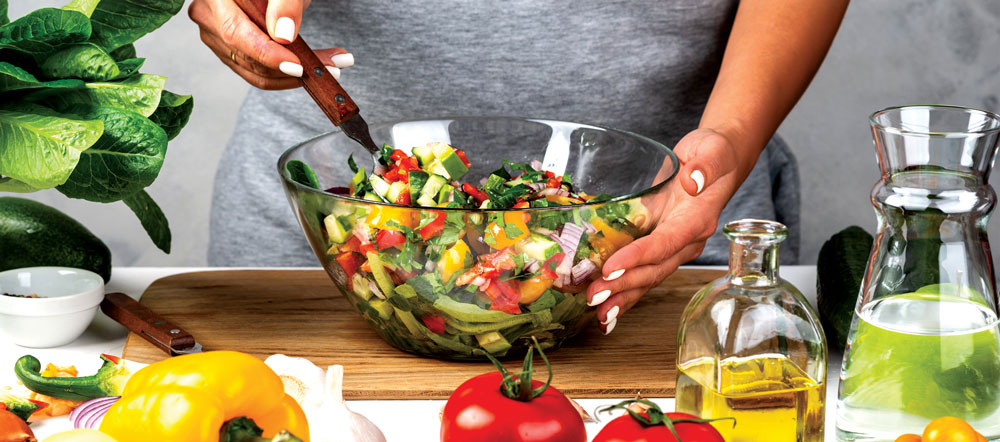
Avenues for action in Germany
Malaysia’s Minister of Primary Industries, the Hon. Teresa Kok, raised the issue of the ‘palm oil-free’ claim at a meeting with German authorities in June 2019. This should only be the start of concerted efforts to halt the trend. The issue could be addressed from the food law angle, as well as the unfair competition angle in Germany.
With respect to the food law angle, an opinion could be sought from the Working Group of Food Chemistry Experts from the Federal States and the Federal Office of Consumer Protection and Food Safety. It is tasked with coordinating the control, sampling, and evaluation of food products within the monitoring authorities of the 16 Federal States.
The Working Group has been strongly involved in issues relating to the composition and labelling of food. Its resolutions have the character of expert opinions that provide important guidance to inform courts tasked with decisions in food law.
For instance, the Working Group held that a ‘gluten-free’ claim on infant formulae and follow-on formulae is misleading, as it constitutes a misleading ‘self-evident’ advertisement with a certainty since, by law, no infant formulae and follow-on formulae may contain gluten.

With respect to the element of unfair competition, economic consumer protection is mainly enforced through collective civil legal actions, in which specific qualified institutions, associations, and chambers of industry and commerce have the right to object to violations by operators and, if necessary, to file a lawsuit with the competent court.
In Germany, if consumers consider labelling or advertising as misleading, they themselves cannot take legal action against the food business operator or retailer. However, consumers can notify the Consumer Centres (Verbraucherzentralen), which are legally entitled to issue dissuasion warnings based on the German Law against Unfair Competition, requesting the operator to cease and desist.
Such a dissuasion warning typically calls on an operator to refrain from using the labelling or advertising in question and signals that the Consumer Centres may enforce this claim in court, unless a declaration of discontinuance is signed by the operator within a certain period of time. Following such warnings, Consumer Centres have standing to pursue legal proceedings in the form of collective actions in the general interest to sanction unfair competition and enforce consumer protection.
Similarly, anyone may submit a complaint to the German Centre for Protection against Unfair Competition (Wettbewerbszentrale) about any alleged competition offence. This is the largest and most influential German and cross-border self-regulatory institution for the enforcement of the German Law against Unfair Competition. It may then issue a dissuasion warning, in the event of a competition offence and in order to reach an out-of-court settlement. If such settlement is not reached, the Wettbewerbszentrale has standing to file a lawsuit against the relevant company.
Despite efforts over the years to engage at a variety of commercial, judicial, administrative and diplomatic levels, deceptive campaigns and misleading labelling practices continue to be waged in Europe against palm oil and products containing palm oil. They are largely initiated by commercial operators and competitors in a number of EU member-states.
These campaigns and practices are especially worrying when conducted using the ‘palm oil-free’ claim. With the wave of products labelled with the claim gaining traction in Germany, palm oil producers must not hesitate in acting to curb the trend.
FratiniVergano
European Lawyers
By gofb-adm on Friday, February 21st, 2020 in Issue 1 - 2020, Markets No Comments
In December 2018, the European Union’s (EU) updated Renewable Energy Directive (REDII) entered into force. It set higher renewable energy targets for EU Member States and claims to “ensure robust [greenhouse gas (GHG)] emission savings and minimize unintended environmental impacts”.1 One element of REDII is the cap it places on the use of biofuels in the transport sector and, relatedly, its targeting of emissions from so-called indirect land-use change (or ILUC).2
Biofuels are renewable fuels made from plant or animal material. They can be used to replace non-renewable fuels. For example, biodiesel (a biofuel made mostly from renewable vegetable oils) can replace diesel (a fuel made from the non-renewable fossil fuel petroleum). Although biofuels release GHG, they release less than fossil fuels.
ILUC concerns a potential scenario where biofuel production indirectly releases significant GHG. The scenario has three steps. The first is that demand for biofuel leads to existing agricultural land (producing food and feed crops) being converted to biofuel production. The second is that supply of food and feed crops decreases as a result but the demand for food and feed crops remains the same. The third is that to meet this unmet demand for food and feed crops, the use of other land is changed, in particular, land with high carbon stock, such as forests or wetlands, is changed into agricultural land (by clearing or burning) releasing a large amount of GHG.3
The EU has expressed its concern that ILUC-related emissions could negate some or all of the GHG savings through biofuel use.4 REDII limits EU Members’ ability to factor so-called “high ILUC-risk” fuels into their calculations of renewable energy use in the transport sector to 2019 levels, and gradually reducing that share to 0% by 2030.5 The relevant effect is to set a renewable energy target, but to limit the biofuel consumption in the transport sector that an EU Member State can take into account when assessing whether it achieves that target. The EU has also implemented regulations setting out its methodology for determining whether a biofuel is associated with a high risk of ILUC.6
In a related press release, the EU notes that the data it relied on “show that palm oil has been associated with the highest level of deforestation” as “over the period 2008-2015, 45% of the expansion of palm oil took place in high carbon stock areas”, which is “is not even by far comparable to other feedstock”.7
Indonesia and Malaysia — the top two producers of palm oil — have raised concerns in relation to REDII in the Committee on Technical Barriers to Trade at the WTO. On 13 March 2019, Malaysia stated that this will result in “arbitrary and unjustifiable discrimination, in favour of other oil crops”, that it is “a disguised restriction on international trading of palm oil and its products”, and that the basis for determining high ILUC risk “lack[s] scientific data and reliable information”.8 Indonesia stated to the same Committee on 1 July 2019 that REDII will discriminate against biodiesels generated from palm oil vis-à-vis other biodiesel products produced within EU members countries, and will create unnecessary barriers to trade.9
The EU has stated that REDII complies with its WTO obligations, as it does not single out specific biofuels, and does not limit the market access of imported biofuels to the EU.10
Indonesia11 and Malaysia12 were both expected to initiate WTO dispute settlement proceedings in November, in order for a WTO dispute settlement panel to assess REDII for its consistency with the EU’s WTO obligations. At the time of writing, no dispute has been initiated by either country, but in light of the EU’s recent initiation of disputes against Indonesia in relation to alleged illegal subsidies for raw materials,13 it is reasonable to expect that the initiation of a dispute against the EU is imminent.
While the EU is right that the text of REDII and its accompanying regulations make no mention of palm oil, or of Indonesia and/or Malaysia (or indeed of any other country), WTO law nonetheless precludes WTO Members from discriminating “de facto” against foreign products, or against products from one or more countries. To the extent that palm oil-derived biofuels are in a competitive relationship with other food crop-derived fuels — such as the sugar and cereal crops that feed bioethanol production, or the other vegetable oils that are used in biodiesel, which do not have a high ILUC risk under the EU’s methodology — then the inquiry will turn on whether REDII changes the conditions of that competition in the biofuel market by disadvantaging palm oil-derived biofuels.
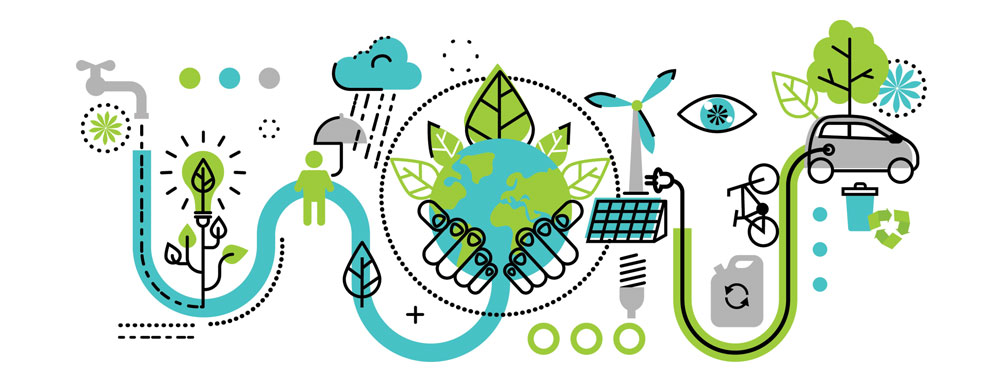
If REDII does discriminate against palm oil products, the case will turn on whether the EU can successfully make out a defence under the various exceptions in WTO law, such as for measures “necessary to protect human, animal or plant life or health”, or measures “relating to the conservation of an exhaustible natural resource”.
Several complexities arise in this respect. First, the EU identifies in REDII not only the reduction of GHG emissions as its objective, but also improving energy security, reinforcing technological leadership in the renewable energy field, and creating jobs and growth.14 Here, the EU would need to demonstrate that REDII addresses GHG emissions; if REDII is successful only in (for example) improving energy security through shifts in production to other feed crops (in particular those predominantly produced in the EU), it is unlikely that the measure will be validated by a panel.
Second, WTO panels and its Appellate Body have been reticent15 regarding whether there is an implied jurisdictional limitation on WTO Members regarding measures to address public policy objectives in other countries. In this case, the difficulty would arise because the EU is adopting measures to address GHG emissions in palm oil-producing countries, related to the clearing of the land required. This difficulty is compounded by the fact that the Kyoto Protocol limits parties to basing their National Emission Inventories (used to benchmark progress towards UNFCCC goals) on GHG emissions and removals taking place within their own territories, and not in other jurisdictions.16 Endorsement of an EU measure that addresses an environmental concern in another country would, therefore, be a big step for WTO law, and a contentious one under international environmental law.
Third, the EU would need to justify the scientific basis upon which REDII distinguishes between palm oil and other biofuels. The EU has set out a review of scientific literature17 that considers the relative expansion of different feed crops; the complainants in any WTO dispute would certainly challenge this. In particular, the EU would be in a difficult position were the complainants to adduce evidence of other feed crops – particular those produced within the EU – that could also be associated with a high risk of ILUC but that are not excluded by the ILUC thresholds identified in the EU’s methodology.
Fourth, REDII identifies whether a product carries a high ILUC risk based on historical data relating to the expansion of global production of a given biofuel into areas with high carbon stock. Although there are limited exemptions for low ILUC-risk biofuels, the measure nonetheless does not appear to accommodate the notion that specific palm oil biofuel may have been farmed sustainably, or on already cleared land, that did not push agricultural production onto other lands. Put differently, there appears no way of accounting for any disjuncture between a general risk of ILUC and a given consignment of biofuel. This may make it difficult for the EU to demonstrate that REDII is sufficiently flexible to take into account relevant differences in conditions among, or even within, palm oil-exporting WTO Members.
Finally, the EU’s justification of REDII would involve argumentation around the relationship between the measure and its intended objective — the required strength of this relationship will depend on the exception(s) that the EU invokes. Part of the analysis is likely to relate to the contribution that REDII makes to its objectives. Here the EU will have to grapple with the likelihood that reducing the extent to which EU Members can rely on palm oil will likely shift demand towards other biofuels — all of which are less energy-rich and thus require more land for production.18 Unless the EU can demonstrate that increases in demand for alternative (non-palm oil) fuels will not drive additional land-clearing to account for the lower productivity of those substitutes, it may face difficulties demonstrating that REDII makes a contribution towards reducing GHG emissions associated with ILUC.
Any such dispute would come at a difficult moment for the WTO. The organisation is among President Trump’s favourite political footballs; it faces an institutional crisis with the expiration of the terms of two of the remaining three Appellate Body members on 10 December, after which time the organisation will no longer be able to hear appeals of panel reports.19 At a time when the legitimacy, and even the ongoing existence,20 of the WTO is being openly questioned, a dispute which (again) tests the limits of WTO law’s ability to sanction a measure that is purportedly directed towards environmental protection will only serve to compound the institution’s mounting difficulties.
Professor Andrew D. Mitchell
Professor,
Melbourne Law School
and
Mr Dean Merriman
Senior Manager,
Deloitte Australia’s Global Trade Advisory practice
By gofb-adm on Friday, February 21st, 2020 in Issue 1 - 2020, Markets No Comments
Dutch margarine brand The Flower Farm (TFF) has lost its appeal against the first ruling of the Advertising Code Committee (RCC) on all points. On Dec 17, 2019, the Board of Appeal (CvB) confirmed the RCC ruling on the company’s misleading anti-palm oil marketing.
The CvB decision was stricter than even that of the RCC. It stated that TFF’s marketing concept is misleading and that it must adjust packaging, a television commercial and video, social media messages and website content.
In the Netherlands, all margarine is deforestation-free. In its marketing campaign, TFF erroneously opposed sustainable palm oil, and wrongly set up consumers against margarines containing sustainable palm oil. All statements made by TFF about palm oil and deforestation were therefore deemed unqualified, unilateral, misleading and not permitted.
In arriving at its decision, the CvB also considered the statements of NGOs that support sustainable palm oil and have no commercial interest of great importance.
In November 2019, the RCC had ruled that the campaign for the new margarine brand was misleading, inaccurate and indiscriminate. TFF appealed against part of the ruling but lost.
The CvB ruled in favour of the European Palm Oil Alliance (EPOA) and with additional arguments. It said TFF had acted in breach of both the Dutch Advertising Code and the Environmental Advertising Code.
The CvB said: “[The] EPOA has made it sufficiently plausible that the RSPO standard actually offers guarantees. Furthermore it is important that the RSPO certification is supported by [NGOs] the World Wide Fund for Nature, Solidaridad and other organisations that have no business interests in the palm oil industry and that are specifically aimed at nature conservation and social goals. Solidaridad’s statement submitted with the defence shows that they fully support the complaint against [The] Flower Farm and that they consider the RSPO as a credible and effective organisation for making the palm oil sector more sustainable.”
The CvB considered claims suggesting that tropical rainforests must be destroyed for palm oil as incorrect and therefore misleading. Also misleading is the claim that palm oil exterminates animals including the orang utan. It ruled that the statement by TFF that a family saves 30 square metres of rainforest each year when using its margarine is incorrect and is in violation of the Environmental Advertising Code.
TFF may no longer use this statement. It has to adjust the text on pack about the destruction of rainforests by palm oil. This also applies to the television commercial, the video that is used in the campaign, and films with texts on Instagram and Facebook and the website.
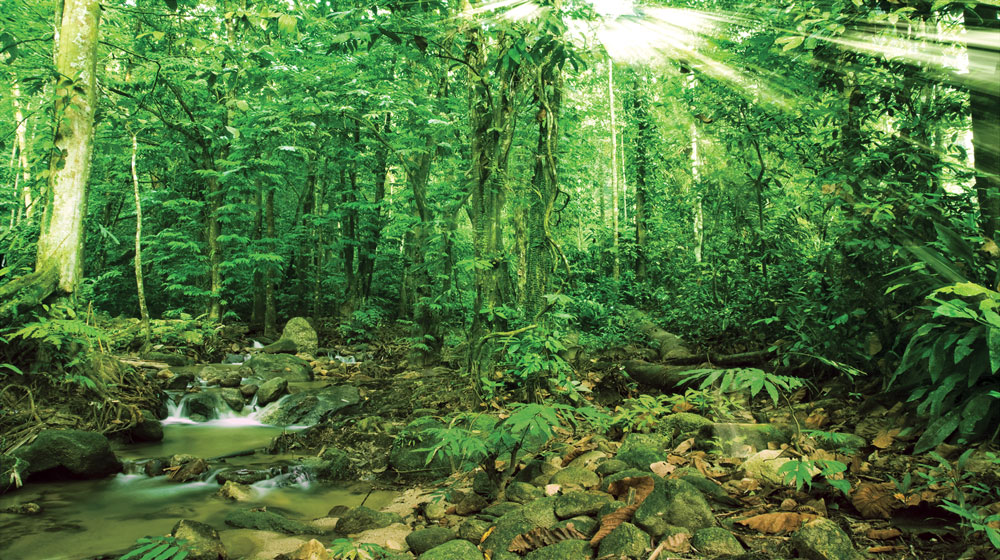
Support for the ruling
The EPOA is committed making the palm oil sector more sustainable and points out that only sustainably produced palm oil can solve the problems for people and the environment. It is supported in this by a large number of NGOs and scientists.
Nico Roozen of Solidaridad confirmed: “We are very happy with both rulings. The Flower Farm’s anti-palm oil campaign is polarising and does not offer a sustainable solution that is widely supported. Opportunism becomes leading and that does not serve sustainability.”
Professor Dr Ir. Otto Hospes of Wageningen University & Research said: “The Flower Farm cannot live up to its promises in their campaign. If you use palm oil-free margarine, you shouldn’t have the illusion to save the rainforest from destruction. It would be much better if The Flower Farm were to use sustainably certified palm oil in their products.”
The palm oil industry is complex and can only be tackled globally. Together with other international initiatives, the EPOA is working on 100% sustainable palm oil use in Europe.
EPOA Chairman Frans Claassen noted: “I am delighted with this ruling. Both [the] RCC and CvB support our approach and punishes misleading and one-sided messaging. TFF likes to position itself as the Tony Chocolonely of the margarine industry, but they are not. The Dutch chocolate brand Tony Chocolonely is committed to making the cocoa sector more sustainable. TFF does nothing related to sustainability. If TFF really wants to work towards a better world, they should join our initiative for sustainable palm oil.”
European Palm Oil Alliance
This is an edited version of a press release.
By gofb-adm on Friday, February 21st, 2020 in Issue 1 - 2020, Comment No Comments
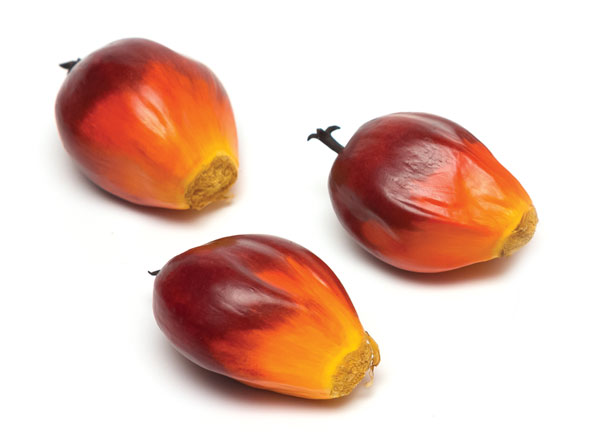
The Hon. Teresa Kok, the Minister of Primary Industries Malaysia officiated the Palm Oil Economic Review and Outlook Seminar 2020 in early January. It was the first seminar for the year deliberating on the performance and outlook of the oil palm industry. In her address, she mentioned that although the sector may foresee challenges, she encouraged Malaysian investors to explore opportunities for investment in both upstream and downstream sectors. Malaysia as the Council of Palm Oil Producing Countries (CPOPC) chair, will work to set new directions to address the numerous issues and challenges and work with member countries to dismantle discriminatory trade measures and promote sustainable palm oil.
“The oil palm industry remains as a significant sector in Malaysia’s economy, contributing 4.5% to the Malaysian Gross Domestic Product (GDP) in 2018. The year 2019 saw a better performance of the Malaysian oil palm industry as evidenced in terms of production and export volume. In terms of palm oil prices, it has charted an increasing trend. The monthly average price recovered from the lowest level at RM1,879.00 a tonne in July to RM2,813.00 a tonne in December 2019. However, low palm oil prices in the first half of the year has resulted in lower export earnings. Hence, the export earnings income of palm oil and its products declined by 5.9% to RM59.0 billion in January to November 2019 compared to RM62.7 billion for the same period in 2018. Nonetheless, export volume increased by 10.9% to 25.7 million tonnes in January to November 2019 against 23.1 million tonnes for the same period in 2018.
Moving into 2020, I am confident that palm oil prices are expected to be firmer supported by favourable factors in the global oils and fats market.
The oil palm industry continues to face various challenges and issues. Challenges such as trade barriers, weakening currency of importing countries, ban on palm oil usage in biofuel by some Western countries and the anti-palm oil campaigns are the many obstacles faced by the oil palm industry. Collectively, the impact will affect the trade of palm oil in the global market.
This year, we foresee more challenges in some of our major markets of the recent development is the imposing restriction by India on RBD Palm Oil in general. Despite these developments, the Ministry will continuously engage these markets including through diplomatic channels to seek amicable solutions to restore market confidence and to further strengthen existing and potential market. Potential new Malaysian Palm oil markets in the middle Central Asian Region such as Kazakhstan and Uzbekistan have steadily increased their imports of Malaysian palm products. Apart from widening market access, Malaysian investors are also encouraged to explore the opportunity for investment in both upstream and downstream sectors in the region.
Other significant potential markets include the African continent, which covers 54 countries with a population of 1.2 billion. Nigeria, South Africa, Mozambique, Tanzania, Kenya, Ghana and Djibouti are among the promising markets in the African continent.
The Middle East countries such as Saudi Arabia, United Arab Emirates, Yemen and Afghanistan are also important markets with growth potentials for the Malaysian palm oil. These countries have a big population but produce inadequate domestic oils and fats. To meet their domestic requirements, the ministry with the collaboration between MPOB and MPOC will continue to intensify efforts to promote Malaysian Palm Oil through trade missions, seminars and interactions with stakeholders abroad.
As the world’s largest palm oil producing and exporting countries, Malaysia and Indonesia are working together to address challenges impacting the industry and unfair treatment related to palm oil trade under the ambit of the Council of Palm Oil Producing Countries (or CPOPC). Both countries, as well as other members nations, are committed to ensure that palm oil is produced and marketed sustainably via respective certification systems. Malaysia as the CPOPC Chair, hope to set new directions to address the numerous issues, and challenges faced by the palm oil industry in the global market. In this regard, the Council is unequivocal on the need for concerted efforts among palm oil producing countries to dismantle discriminatory trade measures against palm oil and promote sustainably produced palm oil.

In ensuring sustainable production of palm oil, the ministry has aggressively pushed for MSPO certification along the supply chain, especially planters, smallholders and oil palm millers. Most importantly, it marks a significant step towards aligning Malaysian palm oil to globally accepted sustainability practices and enhance the branding and image of the Malaysian palm oil.
Through collective efforts of MPOCC and MPOB in implementing certification of MSPO for the industry, as of 15 January 2020, a total of 3.68 million hectares or 62.91% of the 5.85 million hectares of oil palm areas have been MSPO certified. A total of 345 oil palm mills or 76.33% have been MSPO-certified. I would like to reiterate that MPOB will be taking stern action which include cancelling of licences of oil palm growers with 100 acres and above, and palm oil mills that do not comply to MSPO beginning 1 January 2020 under the Malaysian Palm Oil Board (Licensing) Regulations 2005.
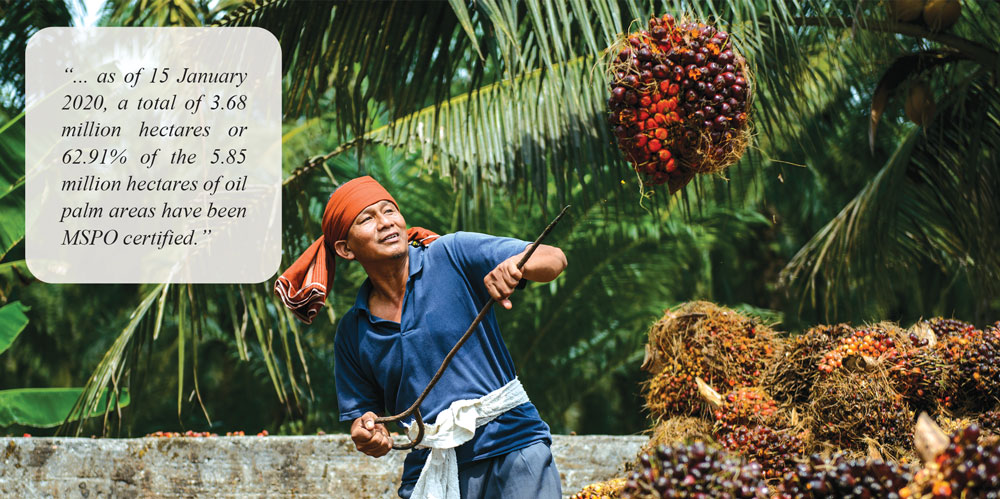
Our efforts in promoting MSPO for acceptance in the global market have made a breakthrough through Tokyo 2020 Organising Committee to support the adoption of the MSPO Certification Scheme as one of the sustainable sourcing requirements for palm oil for Tokyo Olympics and Paralympic Games. This recognition is a vote of confidence for our MSPO scheme. Besides, countries such as China and South Korea have also started to recognise MSPO certificate. Across Europe, Malaysia is on track to export certified palm oil to EU countries by 2020 under the Amsterdam Declaration, mainly to the Netherlands, Italy, Denmark, Germany, United Kingdom, France and Norway. The Ministry will continue to engage importing countries to recognise our MSPO as one of its main objective for 2020.
On the other hand, based on the current palm oil price, I would like to urge all industry players especially the millers to take this opportunity to equip their mills with the necessary equipment and facilities to comply with the environmental rules and regulations such as Clean Air Regulation 2014 and biogas trapping facilities to support clean and green energy. As of December 2019, I have been informed that about 220 out of 460 mills licenced under Department of Environment (DoE) have complied with the Clean Air Regulation. I would like to remind that the timeline for the compliance of this regulation ends on December 2021.
The government has successfully implemented national biodiesel mandate in both the transport sector (B10) since February 2019 and the industrial sectors (B7) since July 2019. The implementation of biodiesel programme in the country demonstrates the Government’s efforts towards diversifying the use of palm oil, reducing dependence on petroleum diesel, reducing Green House Gas (GHG) emissions for combating climate change as well as carbon footprint. The blending of palm biodiesel, 10% in the transport sector and 7% in the industrial sector consumes approximately 750,000 tonnes of crude palm oil annually and hence, supports the stabilisation of palm oil prices.
The Government is committed to increase the blend of biodiesel with diesel petroleum in the domestic market for a cleaner environment. In line with that, the Government has allocated RM35 million to undertake the engineering design involving 35 depots to implement the B20 and B30 agenda. I am pleased to announce that the B20 programme for the transport sector will be implemented in stages beginning with Langkawi on 1st January this year. The Government aims to increase the use of palm oil for biodiesel to 1.3 million tonnes annually for B20 programme in the transport sector and B7 programme in the industrial sector.”
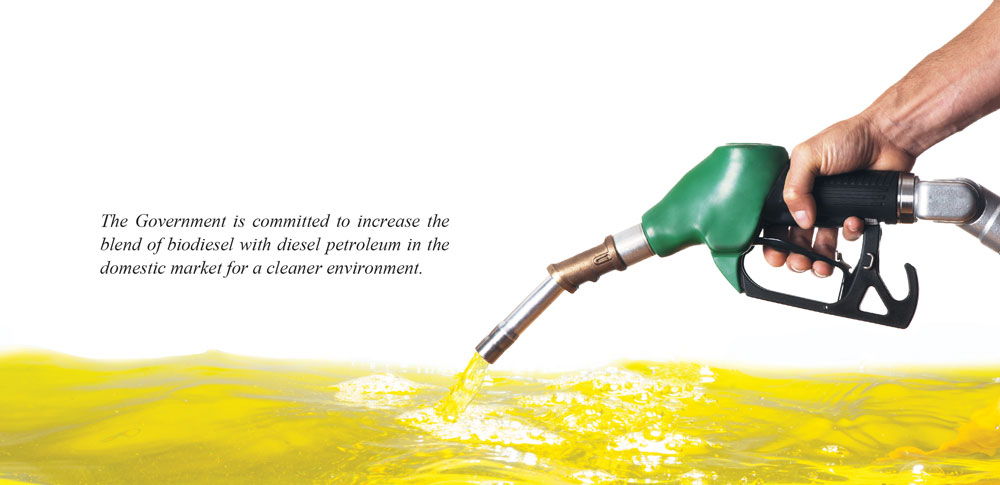
By gofb-adm on Friday, February 21st, 2020 in Issue 1 - 2020, Comment No Comments
The ‘Amsterdam Declaration’ – in place since 2015 and signed by major European governments including Germany, France, the UK, the Netherlands and Italy – is the roadmap to a ‘Fully Sustainable Palm Oil Supply Chain by 2020’.
It is essentially an attempt by these governments to push for only certified sustainable palm oil (CSPO) – which, at the time, was quite clearly defined only as ‘RSPO’ – in all supply chains in their countries by 2020. This meant, in practice, establishing government action (e.g. in public procurement) and pressure on the private sector (many large European members of the RSPO were also loud supporters of the Declaration).
In the most generous view, the Declaration has 12 months to achieve its goal – if we take ‘2020’ as possible, including all 12 months in this calendar year. How is the Declaration faring; has it improved the situation in Europe for oil palm growers who were under siege from anti-palm oil campaigns; and what can be done to improve the Declaration as the deadline looms?
Producing countries have made extraordinary steps forward in poverty alleviation, rural development and environmental protection. It is time for these efforts to be properly recognised.
One of the early concerns around the Declaration was that it was a tool for increasing the EU’s control over palm oil production and the supply chain: in other words, the EU governments would push for excluding all oil, except RSPO, and then look to influence others around the world to do something similar.
Indeed, the Declaration’s Point 7 was reasonably explicit, stating that: ‘We will encourage engagement … with major producing countries and major importing countries like India and China on strengthening responsible and sustainable production in the palm oil supply chain and shifting demand towards sustainable palm oil in the world market.’
That concern has, to some extent, been borne out. The engagement of other sustainability schemes – such as the MSPO in Malaysia and ISPO in Indonesia – have not been warmly welcomed or embraced by the Declaration signatories. This is despite the clear language in the original 2015 Declaration, which states: ‘2. We encourage all stakeholders to support the improvement and further development of sustainability standards towards sustainable palm oil production.’
Malaysia and Indonesia have done this, and yet no one involved in the Declaration has grasped this opportunity to widen the sustainability worldview to include these new efforts. Could it be that the Amsterdam signatories are, in fact, only interested in sustainability initiatives that are conceived in – and under the control of – Europe?
A related concern is the ongoing anti-palm oil campaigns in Europe. Now that seven major European countries are signatories to the Declaration, the question remains whether it can really be a partnership or a bridge between the signatories with palm oil producing countries. The aftermath of the EU is the Revised Energy Directive II, and its Delegated Act will be a litmus test for its continued relevance, especially in the contest of EU relevant policies and regulation affecting palm oil.
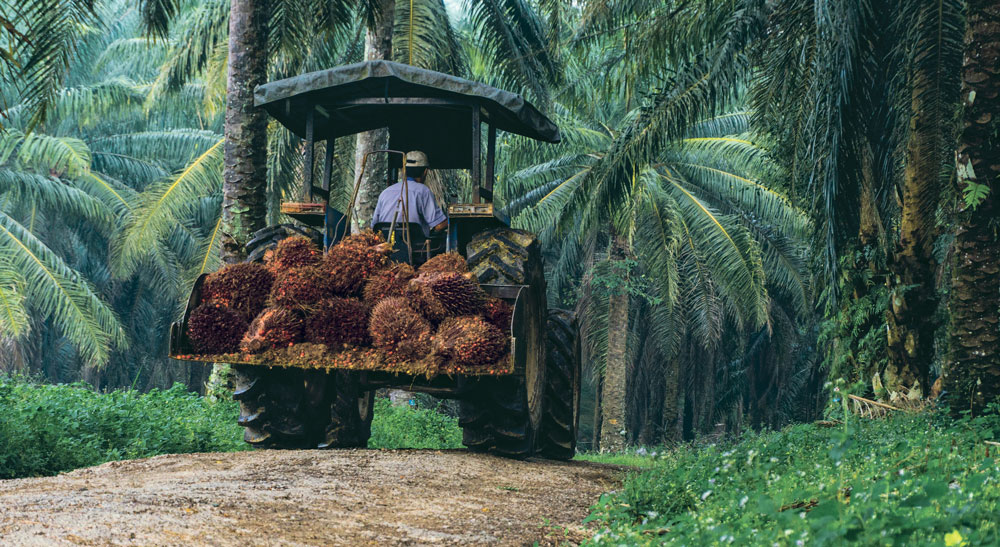
Where’s the quid pro quo?
The Declaration was seen, and promoted, at the time as an opportunity to focus on a positive vision for palm oil in Europe, and a collaboration that could take the industry forward. In other words, if producing countries supported the European vision, and committed to sustainability, then the anti-palm oil lobby would be defeated. That emphatically has not happened.
The commitments made in ASEAN have been manifold – CSPO production increases year-on-year; Indonesia announced a moratorium on development; Malaysia announced a cap on oil palm expansion; both countries developed mandatory sustainability standards; several major companies announced ‘No Deforestation, No Peat and No Exploitation’ (NDPE) commitments; and so on.
Yet, the attacks by Greenpeace, and other European-based NGOs have continued unabated. Worse, the governments who signed the Declaration have not fulfilled their side of the bargain by defending the palm oil sector or correcting the falsehoods of the environmental lobby.
Why does this matter? Simply, because the Declaration was supposed to herald a partnership and cooperation – “We will encourage engagement through development relations and dialogues on trade relations at European and signatory state level with major producing countries” – but that only works if trust on both sides is built and maintained.
The increasing demands – followed by turning a blind eye to anti-palm oil campaigns after producing countries had committed to meeting the demands – have eroded trust in the Declaration and the EU governments who backed it.
Small farmers across Indonesia and Malaysia have protested; government Ministers have complained; and the media have focused on the EU’s efforts to exert control and dominance without giving the necessary assistance and respect to its ASEAN partners. Overall, trust has been eroded significantly, and this element can clearly be said to have failed.
None of this helps meet the goals set out in the Declaration. It needs buy-in and genuine cooperation from all sides. How can the EU, working with ASEAN producers and governments, and the European industry, get the Declaration back on track?
First, those in Europe need to switch to listening mode, rather than simply pointing a loudhailer labelled ‘Sustainability’ at Southeast Asia. Understand the concerns of ASEAN governments, businesses and farmers.
Second, accept that neither the EU nor the RSPO has a monopoly on the meaning of ‘sustainability’ in the palm oil context. The MSPO and ISPO are young standards comparably, but both represent significant progress in their own ways.
Similarly, the announcements of moratoriums, caps on expansion, NDPE commitments and so on, deserve recognition in a proper and formal manner by those committed to the Declaration. Such public support, recognition and encouragement from European leaders could help to rebuild trust and push momentum forward inside producing countries.
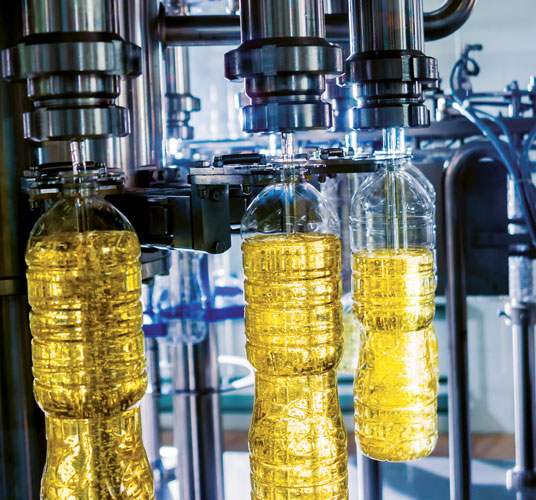
Third, apply the same standards of critical thinking to the opponents of palm oil that are currently applied to producers. When firms are accused of wrongdoing (sometimes fairly, sometimes not), European politicians and media are quick to jump on this. When NGOs tell clear falsehoods in the European media, in an attempt to gin up opposition to oil palm cultivation writ-large, silence reigns.
This is by no means an exhaustive list – the debate around sustainability has many, many more detailed and nuanced facets, each of which requires scrutiny. The Amsterdam Declaration, though, is in many ways a symbol of where the debate is heading, at a higher level.
No one in Southeast Asia is asking for a free ride: but we are asking for genuine cooperation and engagement, not lip service. We are asking for a proactive and positive approach not merely criticism and never-ending NGO reports. We are asking for Europeans to accept – and put into practice – the principle that definitions of ‘sustainability’, ‘responsibility’ and so on are not owned by Brussels or Rotterdam (or even Amsterdam).
Producing countries have made extraordinary steps forward in poverty alleviation, rural development and environmental protection. It is time for these efforts to be properly recognised.
Council of Palm Oil Producing Countries
Jakarta, Indonesia
This blog piece was posted on Dec 30, 2019.